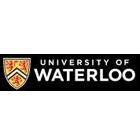- News and articles
- Find usIDP AustraliaIDP BahrainIDP BangladeshIDP CambodiaIDP CanadaIDP ChinaIDP EgyptIDP GhanaIDP Hong KongIDP IndiaIDP IndonesiaIDP IranIDP JordanIDP KenyaIDP KoreaIDP KuwaitIDP LebanonIDP MalaysiaIDP MauritiusIDP Middle EastIDP NepalIDP New ZealandIDP NigeriaIDP OmanIDP PakistanIDP PhilippinesIDP Saudi ArabiaIDP SingaporeIDP Sri LankaIDP Taiwan, ChinaIDP ThailandIDP TurkeyIDP UAEIDP VietnamIDP Corporate
- Social
- English
- Where we operate
- Courses
- Scholarships
- IELTS
- About IDP
- Student Essentials
- News and articles
- Find us
- Find us
- Find nearest IDP offices
- IDP Australia
- IDP Bahrain
- IDP Bangladesh
- IDP Cambodia
- IDP Canada
- IDP China
- IDP Egypt
- IDP Ghana
- IDP Hong Kong
- IDP India
- IDP Indonesia
- IDP Iran
- IDP Jordan
- IDP Kenya
- IDP Korea
- IDP Kuwait
- IDP Lebanon
- IDP Malaysia
- IDP Mauritius
- IDP Middle East
- IDP Nepal
- IDP New Zealand
- IDP Nigeria
- IDP Oman
- IDP Pakistan
- IDP Philippines
- IDP Saudi Arabia
- IDP Singapore
- IDP Sri Lanka
- IDP Taiwan, China
- IDP Thailand
- IDP Turkey
- IDP UAE
- IDP Vietnam
- IDP Corporate
- Social
- Language Switcher
- IDP Education /
- Colleges and Universities /
- Canada /
- University of Waterloo /
- Doctor of Philosophy in Com...


Location
Canada
Qualification
Ph.D.
Fees
CAD22188
(2025)
Duration
4 Year(s)
Next intake
08 September 2025
Entry Score
6.5
IELTSCourse info
Scientists have developed high-throughput tools to probe the inner workings of living cells. Technologies that obtain sequence information from DNA, RNA and protein molecules work in conjunction with tools such as X-ray devices, nuclear magnetic resonance machines and cryo-electron microscopy to reveal the three-dimensional conformation of these molecules. More recent technologies — such as next-generation DNA, RNA and protein sequencing along with mass spectrometry — strive to investigate the interactions between the various proteins and genes within a cell. The result of these investigations is the production of huge amounts of data. The objective of bioinformatics is to store, retrieve, manipulate, visualize, analyze, integrate and interpret data from a variety of data sources so we can fully understand the vast array of processes that occur in living cells, as well as understand Earth’s biodiversity by revealing species, together with their dynamics and interactions. For human health, understanding the disease pathway is essential to treat the more than 6,000 genetic disorders along with cancers and Alzheimer’s disease and many communicable diseases. Applications of this knowledge include drug design and medical diagnostic procedures. Similarly, understanding the biological processes of other species including microorganisms will provide insights relevant in agriculture, biotechnology and fundamental biology.
- Scholarships View all scholarships
- Internships
Entry requirements for University of Waterloo
Student with an undergraduate degree in Computer Science may apply for admission directly to the PhD program. Successful applicants will have an outstanding academic record, breadth of knowledge in computer science, and strong letters of recommendation.
PhD applicants may be admitted into the Master of Mathematics (MMath) program. Like all MMath students, they will have the option to transfer into the PhD program before completing the master's thesis if their performance warrants.
Resume
Supplementary information form (SIF)
The SIF contains questions specific to your program, typically about why you want to enrol and your experience in that field. Review the application documents web page for more information about this requirement
If a statement or letter is required by your program, review the writing your personal statement resources for helpful tips and tricks on completion
Transcript(s)
References
Three references are required, at least two academic
Proof of English language proficiency, if applicable
TOEFL 93 (writing 22, speaking 22), IELTS 6.5 (writing 6.0, speaking 6.5)
Application Deadline
The application deadline isn't available Speak to an IDP counsellor for more detailed information
Further information
If you aren't eligible for the above entry requirements, you might ant to explore pathway options at University of Waterloo. If you want to find out more, speak to our counsellors.
THE World Ranking
163rd / 1250
THE World RankingWhat our students think
We’ve haven’t received any reviews for this institution yet.
Recommended for you
- THE World Ranking:21
- Ph.D.
- Toronto , Canada
- Next intake:09/2025
- Entry Score: IELTS 8.0
- CAD6210 (2025)
- THE World Ranking:301
- Ph.D.
- Halifax , Canada
- Next intake:09/2025
- Entry Score: IELTS 7.5
- CAD14819 (2025)
- THE World Ranking:41
- Ph.D.
- Vancouver , Canada
- Next intake:09/2025
- Entry Score: IELTS 7.5
- CAD9131 (2025)
- THE World Ranking:301
- Ph.D.
- Halifax , Canada
- Next intake:09/2025
- Entry Score: IELTS 7.5
- CAD14819 (2025)
- THE World Ranking:41
- Ph.D.
- Vancouver , Canada
- Next intake:09/2025
- Entry Score: IELTS 7.5
- CAD9690 (2025)
- THE World Ranking:301
- Ph.D.
- Halifax , Canada
- Next intake:09/2025
- Entry Score: IELTS 7.5
- CAD14819 (2025)
- THE World Ranking:301
- Ph.D.
- Halifax , Canada
- Next intake:09/2025
- Entry Score: IELTS 7.5
- CAD14819 (2025)
- THE World Ranking:21
- Ph.D.
- Toronto , Canada
- Next intake:09/2025
- Entry Score: IELTS 7.0
- CAD6210 (2025)
Your action plan
Step 1
Shortlist your courses
Choose the best three courses you’re most likely to pursue.
Step 2
Check your eligibility
Get an instant in-principle offer for courses with the IDP FastLane tag.
Step 3
Apply through IDP Live
Fill out the form once and use it to apply to multiple courses.
How does IDP FastLane work?
With the FastLane 'Offer in Principle', you'll know in minutes if you'll be accepted!
Select an institution and course
Create your academic profile
Submit your application for an 'Offer in Principle'
Your chosen institution(s) will send you a decision in minutes!
Get ready to apply with an expert counsellor




